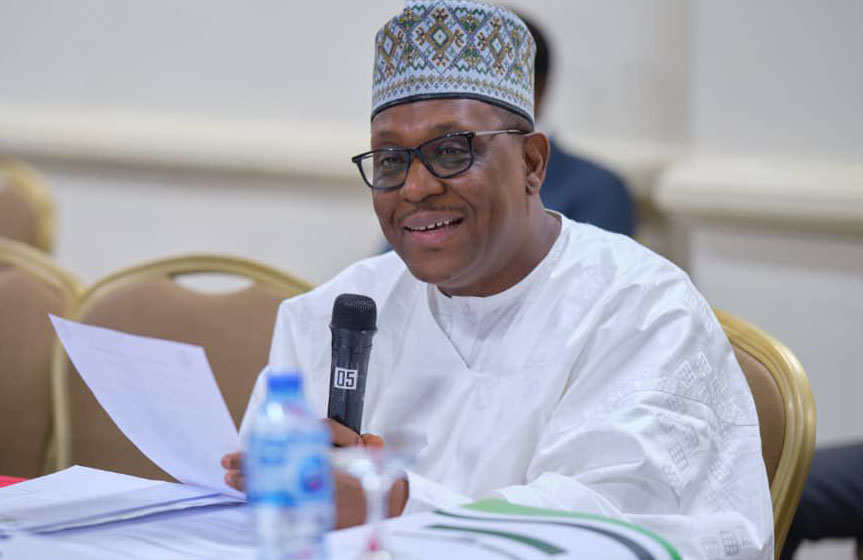The Minister of Health and Social Welfare, Ali Pate, has called on the National Assembly to pass legislation recognizing drug addiction as a health challenge rather than solely a criminal offense. This appeal is part of broader recommendations aimed at fostering a more compassionate and evidence-based approach to supporting individuals struggling with substance use.
Represented by Jimoh Salaudeen, Director of Hospital Services at the Ministry, Mr. Pate made the call during the second edition of the Legislative Forum held in Abuja on Tuesday. The event, organized by the National Human Rights Commission (NHRC) in collaboration with the European Union (EU), the International Institute for Democracy and Electoral Assistance (IDEA), and the Rule of Law and Anti-Corruption (RoLAC) programme, coincided with the International Human Rights Day celebrations.
A Call for Humane Drug Policies
Highlighting the shortcomings of the current legal framework, Mr. Pate noted that the NDLEA Act CAP N30, primarily focused on prosecuting drug traffickers, has overlooked the need to treat drug users as individuals requiring medical care.
“I call upon the 10th National Assembly to take a historic step towards a humane and evidence-based public health intervention by passing legislation that supports drug harm reduction. Such a framework would complement the NDLEA Act and empower healthcare workers to provide care without fear of arrest,” he stated.
Mr. Pate emphasized that this legislative shift would ensure individuals suffering from drug addiction are treated with dignity and respect, reducing stigma and improving access to care.
Human Rights and Legislative Collaboration
The Executive Secretary of the NHRC, Tony Ojukwu, underscored the commission’s mandate to align policies and draft bills with human rights principles.
“This Legislative Forum is a strategic platform to integrate human rights norms into the legislative process, promoting a culture of respect for human rights in Nigeria,” he said.
The event attracted prominent lawmakers, including Senator Adeniyi Adegbonmire, Chairman of the Senate Committee on Judiciary, Human Rights, and Legal Matters, and Julius Ihonvbere, Majority Leader of the House of Representatives, representing Speaker Abbas Tajudeen. Other attendees included state and national legislators, representatives of UNICEF, and the Drug Harm Reduction Advocacy Network Nigeria (DHRAN).
De-stigmatizing Drug Use
During a session at the forum, experts stressed the need to treat drug abuse as a public health issue rather than a moral failing. Nsidibe Essein, an expert in drug harm reduction, cautioned against the stigmatization of drug users, which often discourages them from seeking help.
“Substance use is a public health problem, yet many people moralize and stigmatize those who use drugs, creating barriers to care,” he noted.
Similarly, Precious Anyanwu, a drug policy advocate, warned against the unlawful detention and harassment of drug users, advocating instead for humane treatment and evidence-based interventions.
Protection of Digital and Civic Spaces
Panelists at the event also deliberated on safeguarding digital and civic freedoms. Mojirayo Ogunalo, a lawyer, emphasized that national security should not serve as a blanket justification for infringing on individual rights, except in cases of genuine threats during a state of emergency.
Supporting this view, Victoria Ibezim-Ohaeri, Executive Director of Spaces for Change, stated:
“Governments must consciously limit the application of national security as a pretext for restricting rights.”
Gbenga Sesan, Executive Director of Paradigm Initiative, called for the release of #EndSARS protesters still detained three years after the protests, highlighting the need for accountability and justice.
Addressing Gaps in the Safe School Initiative
The forum also tackled challenges in implementing the Safe School Initiative, which aims to create secure learning environments for children. Tobi Ransome, Education Advisor at Plan International, pointed to significant knowledge gaps among stakeholders in the education sector. He stressed the need for targeted training and stronger policy implementation to address these challenges effectively.
Conclusion
The Legislative Forum highlighted the interconnectedness of human rights, health, and education in shaping a just society. By advancing policies that de-stigmatize drug use, protect civic spaces, and ensure safe schools, stakeholders aim to build a framework that prioritizes dignity, equity, and public welfare.




